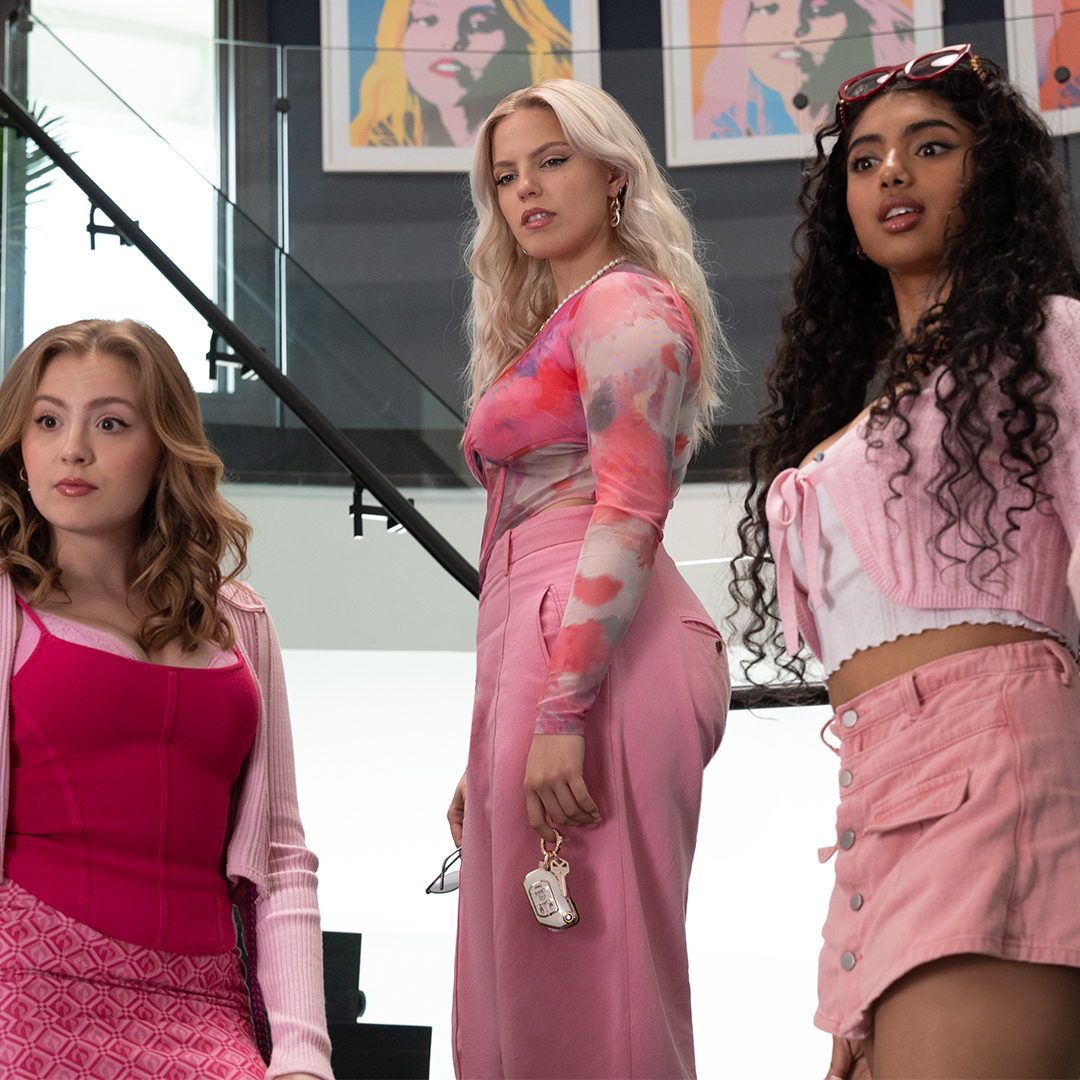
Marketing for the new version of Mean Girls has been very clear: "This is not your mother's Mean Girls," reads the tag line.
Aside from some questionable maths – most Millennial women who watched the original 20 years ago probably don't have their own teenage daughters quite yet – the tagline serves as an important reminder: anyone expecting a carbon copy of classic 2004 teen film might be a little disappointed. This is Mean Girls updated for a new generation of teenagers.
The first clue can be found in the clothes. At first glance, the new film has seemingly wiped away any trace of the Plastics of the past. Instead, we are greeted with Plastics who wear corset tops, tie dye, cargo trousers and low-rise jeans. Plastics who livestream their Halloween outfit selection. Plastics who do fit checks on TikTok.
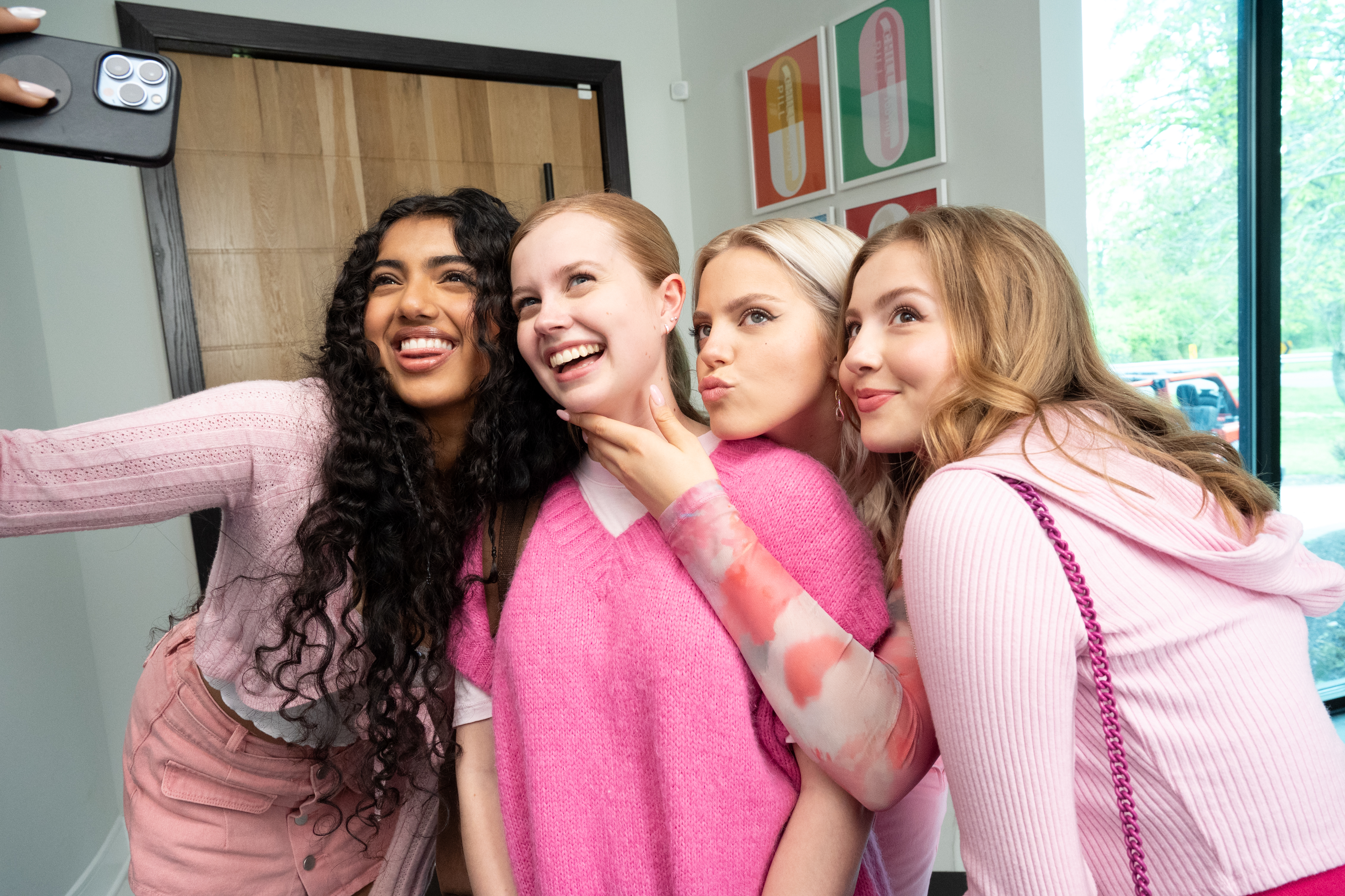
Millennials, if the mere thought of Gen Z-ified Plastics is filling you with a deep sense of dread, fear not. Lingering just below the hyper-modern surface, the new Mean Girls is a visual ode to the original, filled with subtle design Easter eggs to the 2004 classic.
The original, which starred Lindsay Lohan, Rachel McAdams and Amanda Seyfried, captured the epitome of early 2000s style. The new film, inspired by both the 2004 film and the Broadway musical adaptation, is very eager to forge its own visual path. The creator and writer of both the original and the new film, Tina Fey, enlisted the help of long-time collaborator Tom Broecker to design costumes for the updated version.
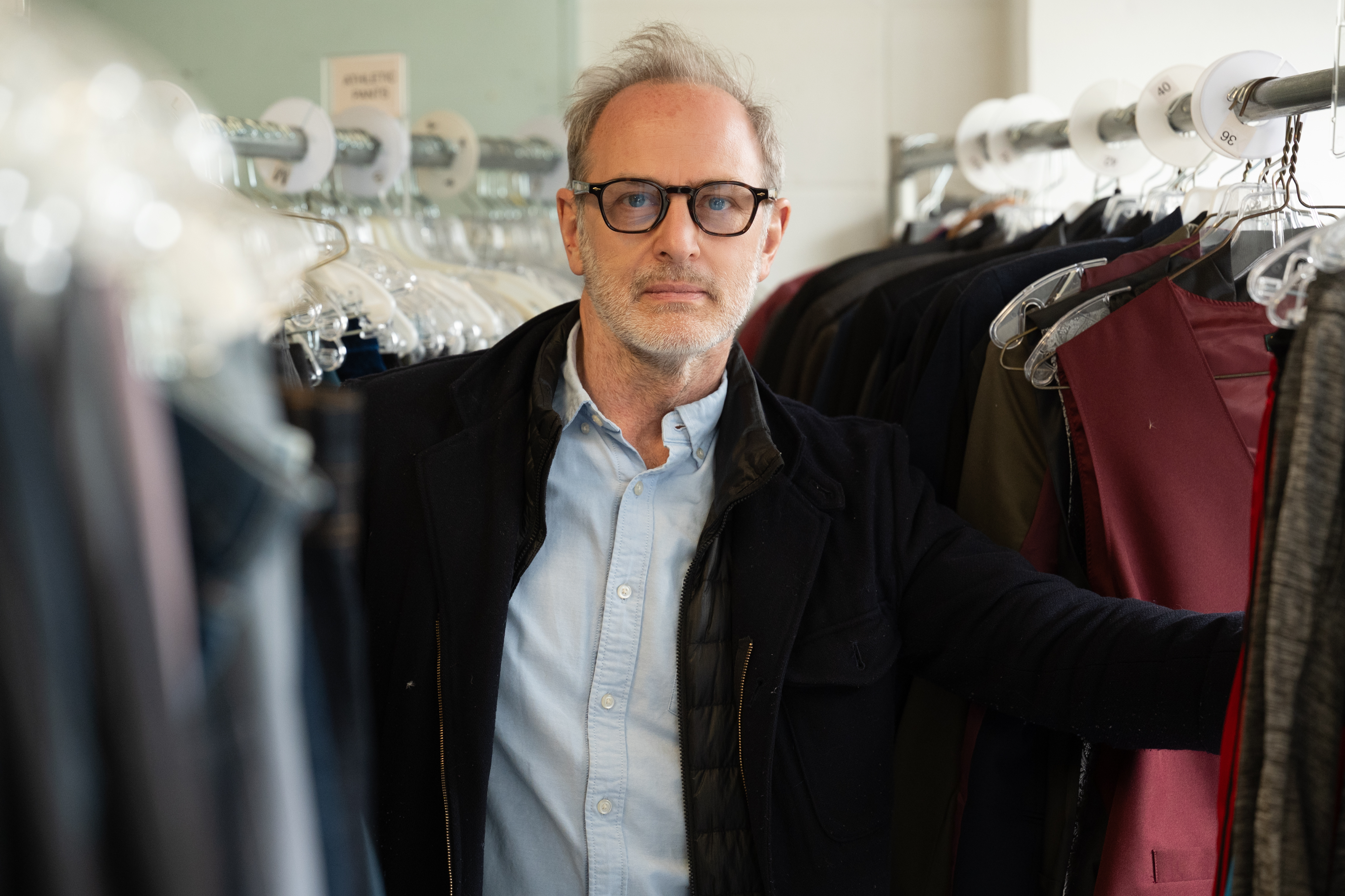
While Fey and Broecker sought to update the visual landscape of Mean Girls, they also understood the profound cultural significance of the original. After all, is it really Mean Girls without those Christmas dresses or Cady's horrifying Bride of Frankenstein costume?
Marie Claire UK spoke to Broecker about how he managed to capture the sartorial spirit of an early 2000s classic, while creating a brand new, hyper-current Mean Girls.
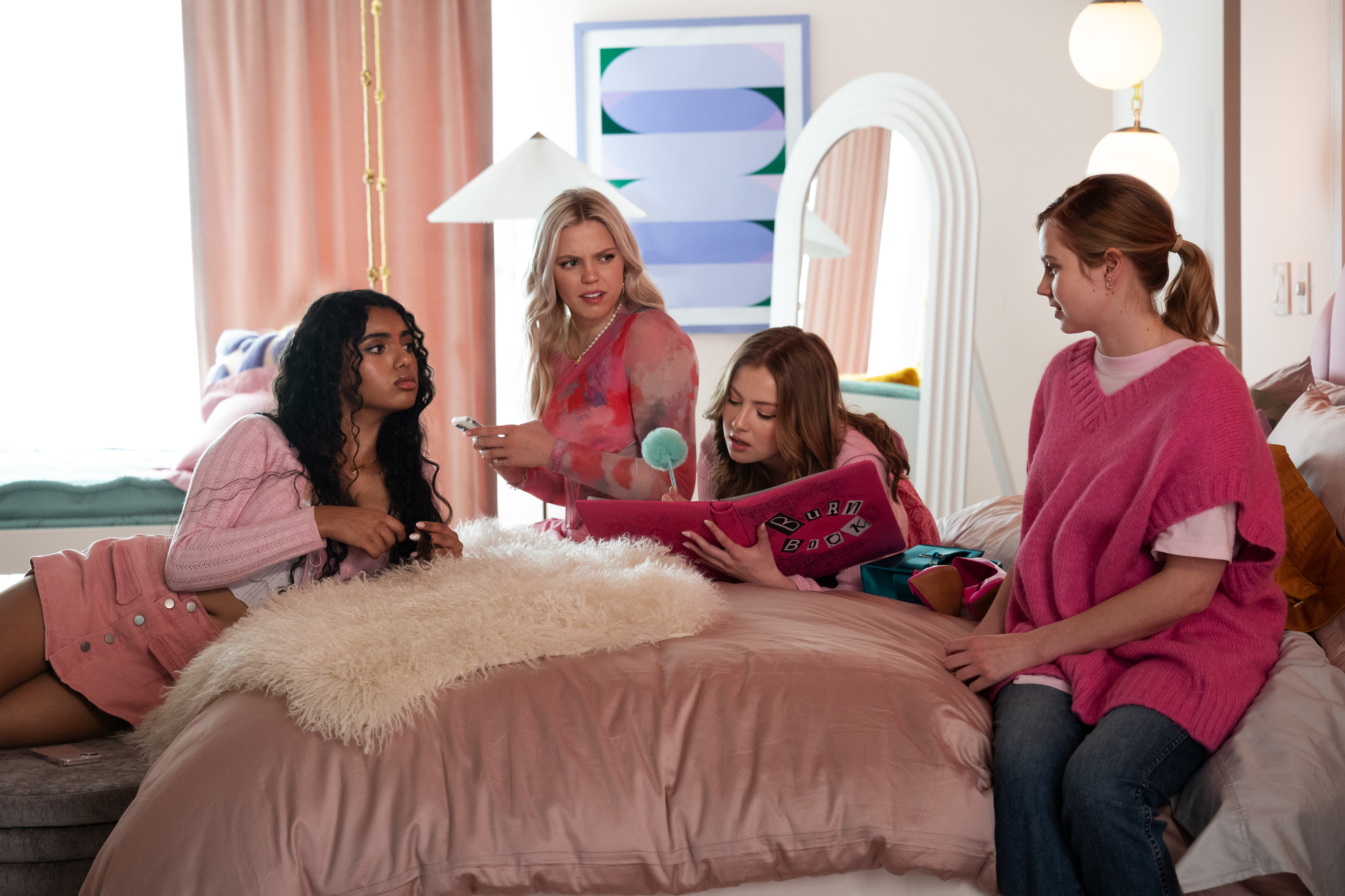
I'm so excited to be talking to you about Mean Girls. You've collaborated with Tina Fey on a number of projects now – what was it like working on your first film with her?
I've known Tina forever. We started on SNL together. We have a great relationship and at this point, we can just look at each other and I'll know what I'm supposed to do or fix or change or adjust. She knows what I'm thinking that way. But this was a completely different project.
My first thought was, "I would really be interested in talking to the directors about what their direction was and the why of it." This movie is iconic, so how do you step into that? Certainly making it into a musical helps differentiate it a lot from the original.
I couldn't help but notice lots of little design references to the original peppered throughout the new movie – but it certainly feels very current stylistically.
We were very conscious that this is a movie for 2024. I think that's why the tagline is "It's not your mom's Mean Girls" – to remind the people who loved the movie that this is a new take. It's an updated version. Because the story still holds. You know, high school is still high school.
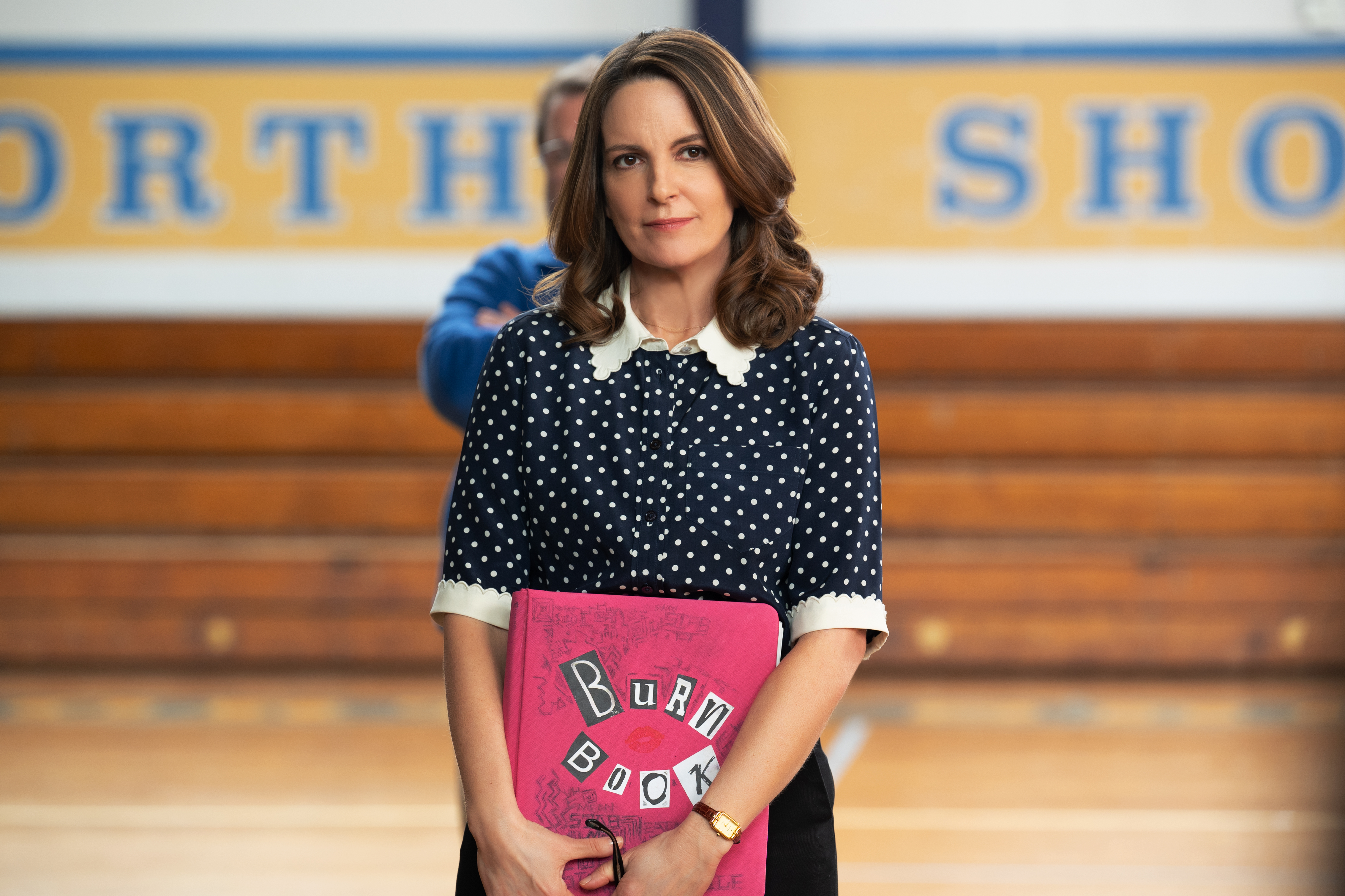
How did you begin to research what a modern Mean Girls might look like?
I drove down to where they were scouting locations in New Jersey and spent a week doing a deep dive into what teenager life is like now. One of my nieces was in her senior year in high school last year, so that certainly helped – just listening to her trials and tribulations of what high school is like now. And it was really important for the directors to have this film reflect the post-pandemic experience. The pandemic broke the world on some level. It was about reflecting that experience of coming back to high school.
High schoolers have a lot more knowledge about what they can think is acceptable behaviour. Ideas about gender and individuality and accountability [have shifted]. After talking with them, it was really important to get those ideas across. The world has really shifted.
I also couldn't help but notice that even some of the more modern looks felt very early 2000s. Damian even had a line at one point asking whether his clothes were "too Y2K".
That's the beautiful thing about Tina's writing – she can just toss those lines off. That's a meta moment where we're sort of calling ourselves out, because the Y2K influence that's currently in fashion was a little bit of a challenge. The original film is 20 years old and now fashion is turning back on itself. It's a little bit of a snake eating its tail. [One way to distinguish it] is that the fits are now completely different. But it was a challenge – sometimes we'd think, "No, no, that is way too close to the original."
The original film is 20 years old and now fashion is turning back on itself.
Although you say you wanted to steer away from the original, I do love all of the specific costume references to the 2004 movie – you've included the miniskirts and those Y2K tops with the button up V-neck and three quarter length sleeves that became iconic after the first film. How did you weave all of those little Easter eggs into your designs?
First of all, there are two [costume] moments which are part of the script. I won't say they are copies of the original film, but there are two moments. One is the sexy Santa costumes and then the other is Halloween. You know, Karen's a sexy mouse and Gretchen's a sexy cat, Cady is a zombie Bride of Frankenstein. That was very much an homage to the original.
I loved the little reference to Regina's iconic boob cut-out white tank top during Karen's Halloween song, too!
That was a good idea that the choreographer had when they were rehearsing. Megan Thee Stallion references it in the music video, too, I think.
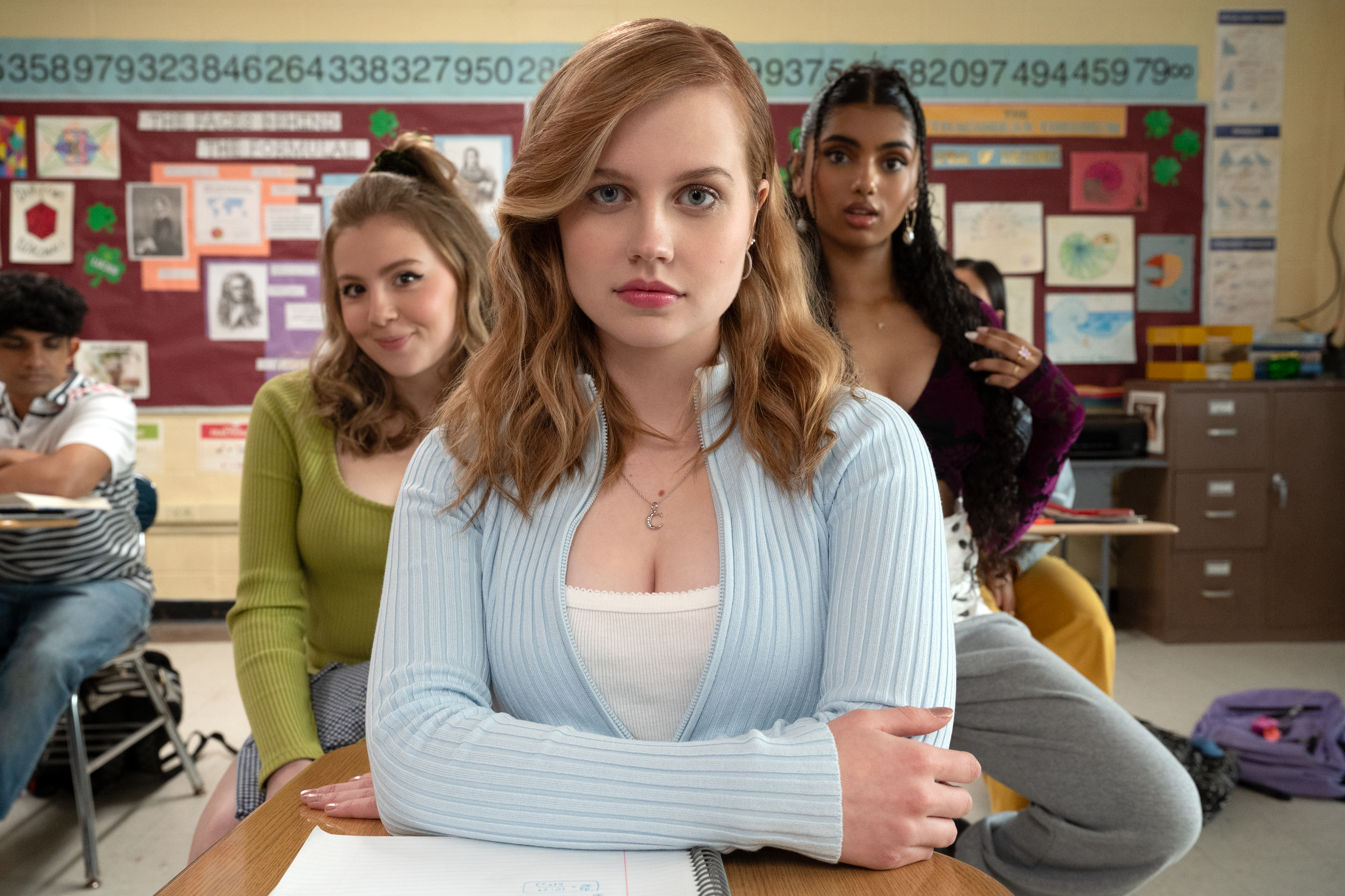
As a Millennial Mean Girls fan, I felt as though you really captured the spirit of those looks, while giving them a contemporary twist.
Yes, the original has this spirit and we tried to keep the spirit of it, but then also change it. Because these are completely different actors playing these parts. And these actors bring their own individuality, their own representation, their own lives to these characters. So, it was really also important to not only keep the spirit of what those original characters were, but also [update it].
For instance, Jaquel [Spivey, who plays Damian] is a black man. So, what is his experience as a black man in high school?
And then, Avantika [who plays Karen] is a completely different character compared to Amanda Seyfried's Karen. They both can exist in this world and at times we wanted to do some referencing, but this is kind of the 'Taylor Swift Eras Tour' version of Karen with unicorns and butterflies in this the spirit of transformation and because Karen does transform.
Renée [Rapp, who plays Regina] is another example. Renée is a completely different actress than Rachel McAdams and so it was very important for us to play into Renée's gender questioning. Regina as a character is this woman who both men and women are attracted to. The duality of gender is very big in this film. And I think that it's also very big in high school.
Regina certainly has a new look in this version. What were your references for her?
Renée is just an incredibly sexy, amazing individual, so it was about constantly trying to play with that push and pull between sexy and boyish, masculine and feminine. It was really important to have that tension in this character.
We used a lot of images of Haley Bieber and Billie Eilish – people who are toeing the line between masculine and feminine. We really played with that duality in her necklace. It's half pearl, half chain and the "R" is in between them. That was a way to co-opt masculine and feminine into one item.
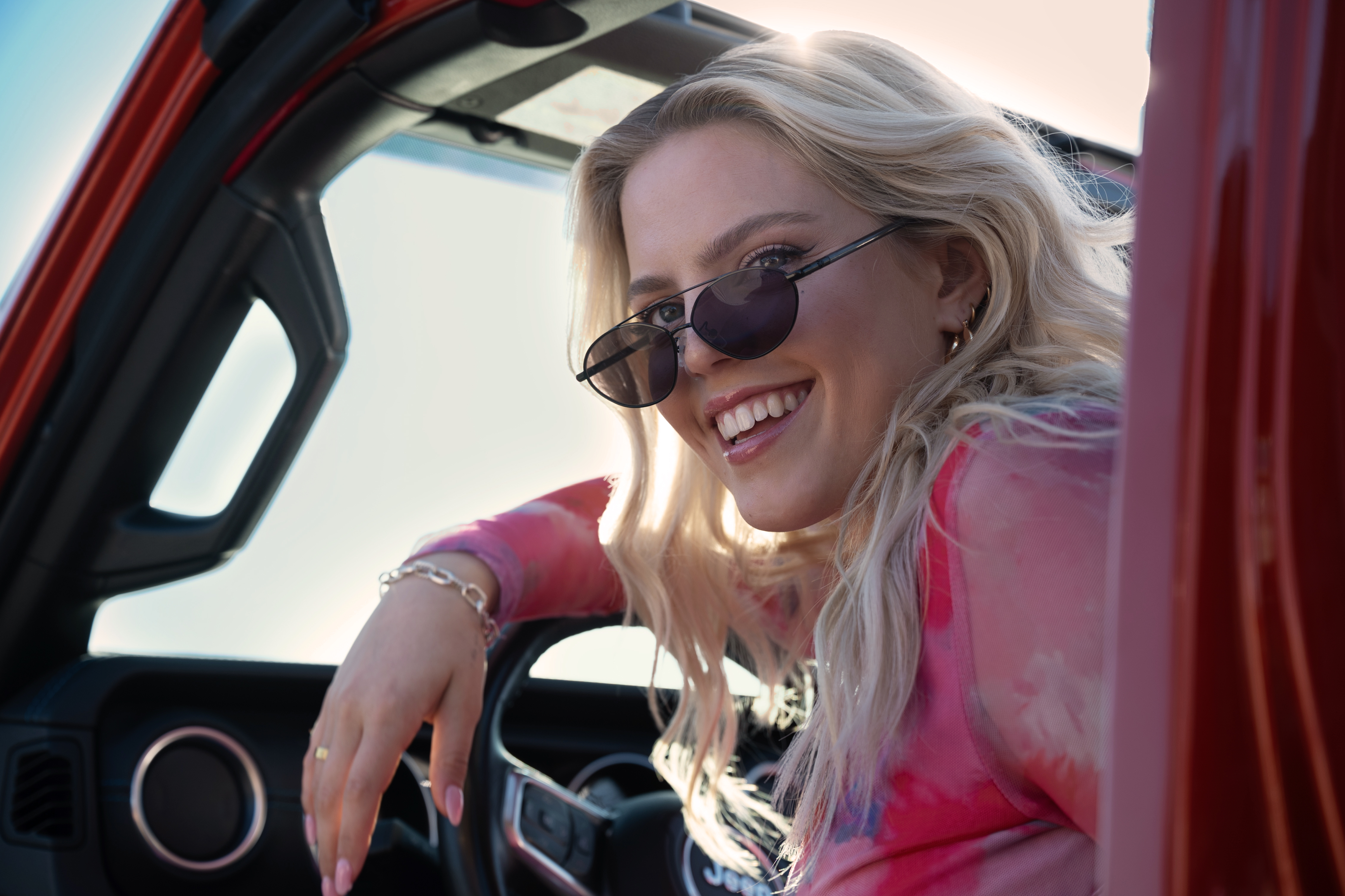
It's wonderful that the famous all-black outfit with the blue bra straps from the original film appears in this new version and still works so well for her character.
That was a fun Easter egg moment – but those are also new clothes. That's a Topshop top and pleather Good American jeans and Gucci boots. So, it gives the reference, but it's also the new version of that look.
From the very beginning of the film, we see that this film is told from the point of view of Janice and Damian – it's their cautionary tale about what it's like to be in high school. So it was always about how they see these people – everything is funnelled through their eyes. So, for Regina, she becomes this evil Cruella De Vil-meets-Black Widow character in that moment.
I was blown away by Regina's Halloween costume, too.
We knew that we didn't want Regina to be a Playboy bunny, which is what Rachel McAdams was in the original. And in the Broadway version, she was a She-devil. We also knew we didn't want to make her a devil – that was too on the nose. We thought it should be a little more abstract and ethereal. And the directors had also conceptualised the moment with a Beyoncé-esque wind machine so that it would have this crazy, horror movie quality to it. They wanted the costume to have movement. We worked with this golden vulture idea – that she's a bird of prey.
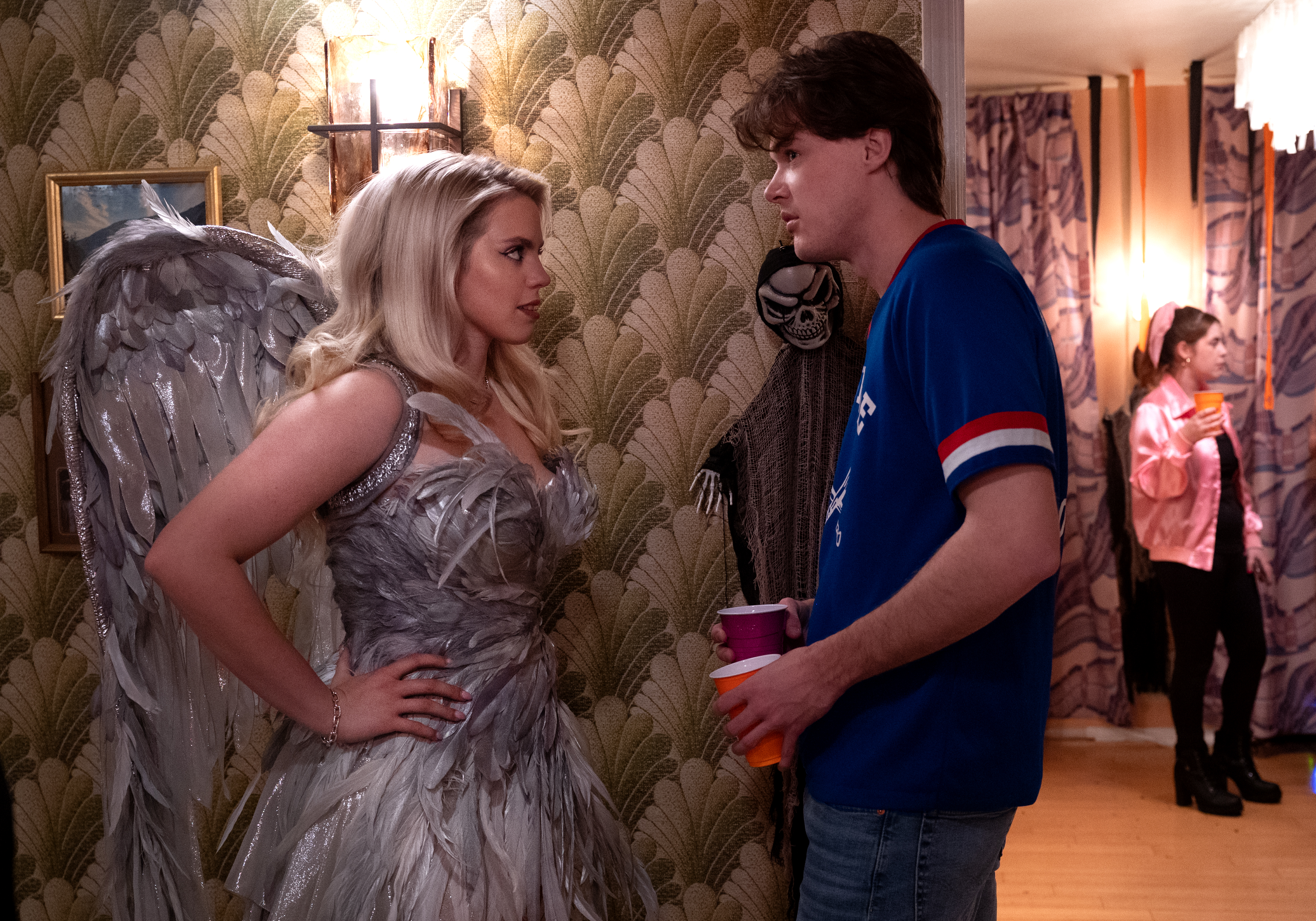
Cady (Angourie Rice) goes through a real journey – from that famous blue flannel shirt that Lindsay Lohan wore in the original into more a prototype Plastic.
She has been in Africa for her whole life. She moves to Chicago six days before school, so her wardrobe is six days old. It hasn't been informed by the high school experience. As she's growing and figuring out who she is, she is feeling out different things. She has an idea of what being Plastic is – tight clothes and exposing her body – because that is what she feels is most feminine and most plastic. It has that 'I'm Barbie' feel.
Like Barbie, the Plastics are elevated above the ground in high heels. It isn't until Barbie's heel hits the ground that she becomes conscious of the real world. There's a little parallel between how the Plastics wear high heels.
Tina [Fey]'s daughter is an artist and she did some artwork on the back of one of Janice's jackets.
I was obsessed with Janice's (Auliʻi Cravalho) clothes in this film. In the original, she was kind of a goth alternative girl whose clothes helped her blend into the background a little. This is a brand new Janice.
In the original, it was a bit tentative about making her queer-coded, but in this one, it's very clear: she's a lesbian, and there are no qualms about it.
Auliʻi [Cravalho] was really involved in developing this version of Janice. We decided she was only going to wear thrift and secondhand. All of her clothes needed to have layers and texture. She's an artist and a theatre geek and most of the time is spent doing artwork and embroidery and threading. We looked a lot at Willow Smith and Kristen Stewart as inspiration.
Tina [Fey]'s daughter is an artist and she did some artwork on the back of one of Janice's jackets. I also saw a girl walking in New York and she had these great jeans on that she had stencilled with numbers all down the sides. I was like, "Can I buy those jeans from you?" She said, "No, but I made them, so you could make your own version." And I did.
And, of course, there's Tina Fey's character. She's reprising her role as Ms. Norbury, and her clothes look almost identical to the original.
We referenced two of her looks very specifically. In her first scene, she's in a blue vest, and that's a reference to the vest that that teacher wore in the original when she was at the mall. And then there was the polka dot blouse during the Burn Book assembly scene. We decided that that is what a teacher would wear today. It's sort of an evergreen teacher look.
Mean Girls is out now in UK cinemas






